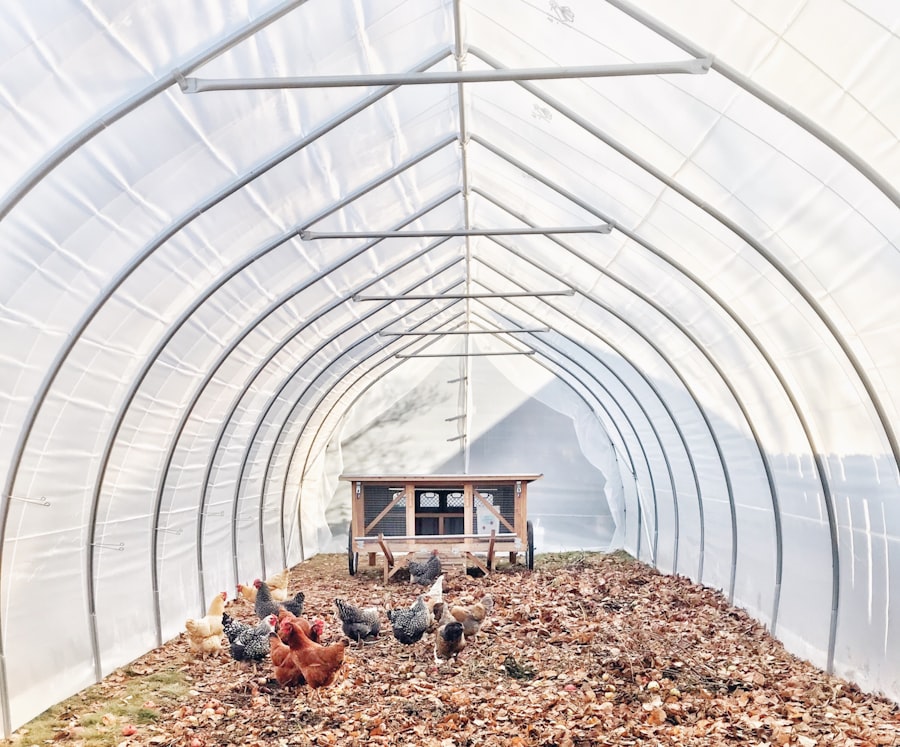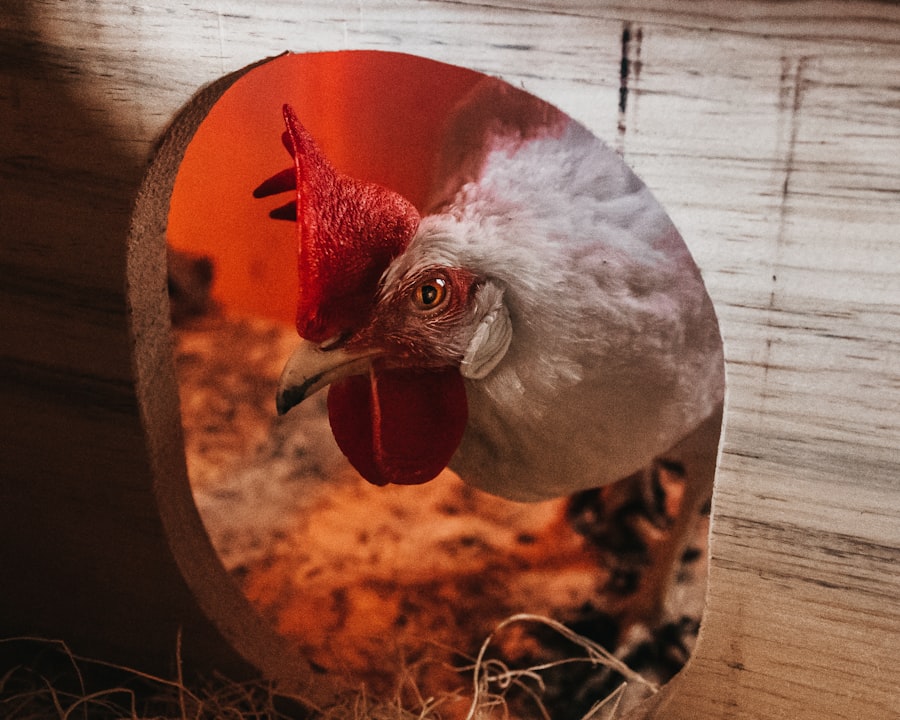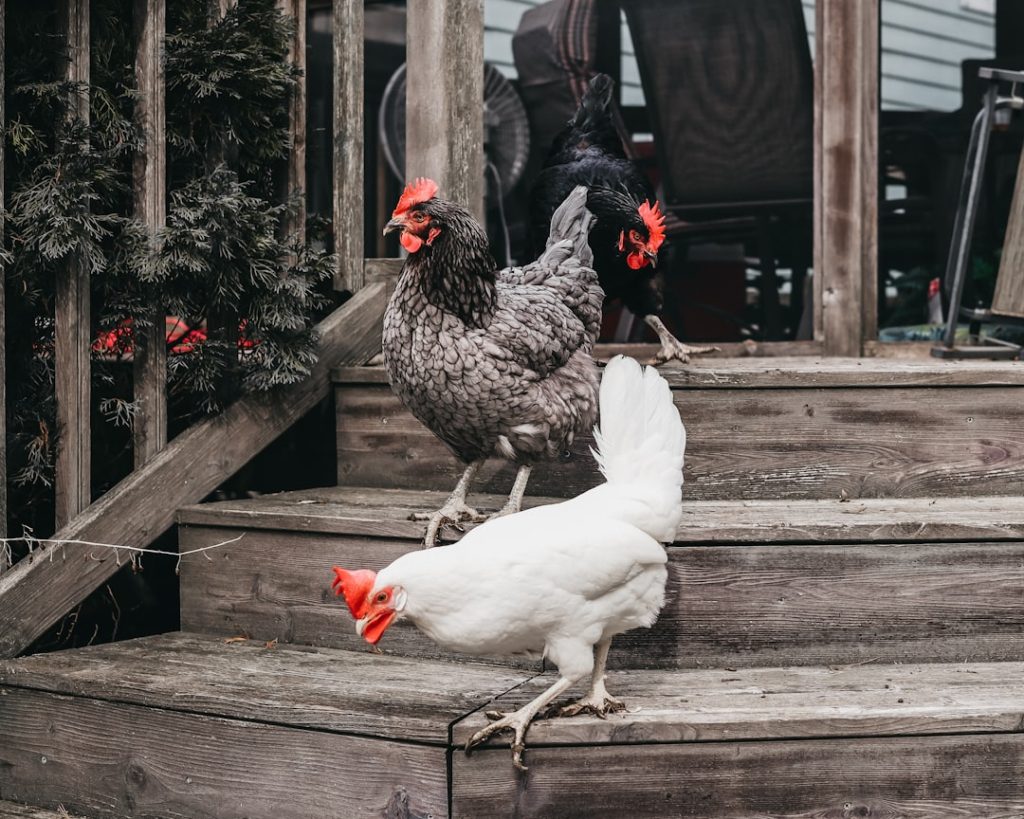When selecting chicken breeds for a backyard coop, several factors should be considered. Climate is a crucial consideration, as some breeds are better adapted to cold weather, while others thrive in warmer conditions. The intended purpose of the chickens is also important, whether for egg production, meat, or dual-purpose use.
Temperament varies among breeds, with some being docile and others more aggressive. Available space is another factor, as certain breeds are better suited for free-ranging, while others adapt well to confinement. After evaluating these factors, specific breed research can begin.
Popular backyard chicken breeds include Rhode Island Red, Plymouth Rock, and Australorp, known for their hardiness, egg production, and friendly nature. For those seeking smaller breeds, Silkies and Bantams are ornamental options that make good pets. The ideal breed choice depends on individual needs and preferences, necessitating thorough research and careful consideration.
Table of Contents
- 1 Setting Up a Coop
- 2 Feeding and Watering
- 3 Providing Proper Care and Maintenance
- 4 Protecting Against Predators
- 5 Collecting and Using Eggs
- 6 Health and Veterinary Care
- 7 FAQs
- 7.1 What are the benefits of keeping chickens?
- 7.2 What do chickens need to thrive?
- 7.3 How do I choose the right breed of chicken for my needs?
- 7.4 What should I consider when building a chicken coop?
- 7.5 How do I care for chickens in terms of health and hygiene?
- 7.6 What should I feed my chickens?
- 7.7 How do I protect my chickens from predators?
- 7.8 What are the legal considerations of keeping chickens?
Key Takeaways
- Consider the climate, space, and purpose of raising chickens when choosing the right breed for your coop.
- When setting up a coop, ensure it has proper ventilation, insulation, and protection from predators.
- Provide a balanced diet for your chickens, including grains, greens, and protein, and ensure they have access to clean water at all times.
- Regularly clean the coop, trim their nails and beaks, and monitor for signs of illness to provide proper care and maintenance for your chickens.
- Install fencing, secure latches, and motion-activated lights to protect your chickens from predators such as foxes, raccoons, and birds of prey.
- Collect eggs daily, store them properly, and use them in a timely manner to ensure freshness and safety.
- Schedule regular check-ups with a veterinarian and be prepared to treat common ailments such as mites, lice, and respiratory infections in chickens.
Setting Up a Coop
Coop Size and Ventilation
The general rule of thumb is to allow 2-3 square feet of space per chicken inside the coop, and 8-10 square feet per chicken in an outdoor run. This will ensure that your chickens have enough space to move around comfortably and engage in natural behaviors like scratching and dust bathing. Additionally, make sure the coop is well-ventilated to prevent moisture buildup and ammonia levels from rising.
Coop Layout and Features
Next, consider the layout of the coop. You’ll need nesting boxes for your hens to lay their eggs, as well as roosting bars for them to perch on at night. Make sure the nesting boxes are located in a quiet, dark area to encourage egg laying. You’ll also want to include a secure door and windows that can be opened and closed to provide fresh air and natural light.
Materials and Predator Protection
Think about the materials you’ll use to build the coop. Wood is a popular choice for its insulating properties, but make sure it’s treated to resist rot and predators. Additionally, consider adding wire mesh around the coop to keep out predators like raccoons and foxes.
Maintenance and Repairs
Once your coop is set up, it’s important to keep it clean and well-maintained. Regularly remove soiled bedding and replace it with fresh material to prevent the buildup of bacteria and ammonia. Additionally, check for any signs of wear and tear on the coop and make any necessary repairs to keep your chickens safe and secure.
Feeding and Watering

Proper nutrition is essential for keeping your backyard chickens healthy and productive. When it comes to feeding your flock, there are several options to consider. Many chicken keepers choose to feed their birds a commercial feed that is specifically formulated for laying hens.
These feeds typically contain a balanced mix of protein, vitamins, and minerals to support egg production and overall health. You can also supplement their diet with kitchen scraps, fruits, vegetables, and grains to provide additional nutrients and keep your chickens entertained. In addition to feeding, it’s important to provide your chickens with access to clean, fresh water at all times.
Chickens can drink a surprising amount of water each day, especially during hot weather or when they are laying eggs. Make sure their waterers are kept clean and free of debris to prevent the spread of disease. In colder climates, consider using heated waterers to prevent freezing during the winter months.
It’s also important to monitor your chickens’ food and water intake to ensure they are getting enough nutrients and staying hydrated. Keep an eye out for any changes in appetite or behavior that could indicate a health issue. By providing a balanced diet and access to clean water, you can help your chickens stay healthy and happy.
Providing Proper Care and Maintenance
Caring for backyard chickens involves more than just providing food and water. It’s important to regularly check on your flock to ensure they are healthy and thriving. One key aspect of care is monitoring their behavior and appearance for any signs of illness or injury.
Look for changes in appetite, droppings, or egg production that could indicate a health issue. Additionally, check your chickens for any signs of parasites like lice or mites, which can cause discomfort and affect egg production. Regularly handling your chickens is also important for maintaining their health and well-being.
This allows you to check for any abnormalities or injuries, as well as build trust with your birds. Additionally, handling your chickens can help them become more tame and easier to manage. Another important aspect of care is providing enrichment for your chickens.
This can include things like perches, dust baths, and toys to keep them entertained and engaged. Enrichment not only improves their quality of life but can also reduce stress and prevent negative behaviors like feather picking. Finally, it’s important to stay up-to-date on best practices for chicken care by reading books, attending workshops, or joining online forums where you can connect with other chicken keepers.
By staying informed and proactive in your care routine, you can help ensure that your chickens live long, healthy lives.
Protecting Against Predators
Predators pose a significant threat to backyard chickens, so it’s important to take steps to protect your flock from harm. One of the most effective ways to deter predators is by securing your coop with sturdy fencing and locks. Make sure the fencing extends underground to prevent digging predators like foxes and raccoons from gaining access.
Additionally, consider adding an apron of wire mesh around the perimeter of the coop to further deter digging predators. In addition to securing the coop itself, it’s important to be mindful of other potential entry points for predators. This includes windows, vents, and gaps in the structure that could allow access.
Regularly inspect these areas for signs of wear or damage and make any necessary repairs. Another effective way to protect against predators is by using deterrents like motion-activated lights or sound devices that can startle potential threats. Additionally, consider using guard animals like dogs or geese that can help protect your flock from predators.
Finally, it’s important to be vigilant about predator activity in your area and take proactive measures to prevent encounters with your chickens. This includes keeping food sources like garbage cans secured and avoiding leaving out scraps that could attract predators. By taking these steps to protect against predators, you can help ensure the safety and well-being of your backyard flock.
Collecting and Using Eggs

Daily Egg Collection Routine
One of the most rewarding aspects of keeping backyard chickens is collecting fresh eggs from your flock. To ensure that you get the most out of your hens’ egg-laying abilities, it’s important to establish a routine for collecting eggs each day. This not only ensures that the eggs are fresh but also prevents them from being damaged or eaten by predators.
Handling and Storing Eggs with Care
When collecting eggs, it’s important to handle them with care to prevent breakage or contamination. Use a clean basket or egg carton to gather the eggs, being mindful not to stack them too high or place heavy objects on top of them. Once you’ve collected your eggs, it’s important to store them properly to maintain their freshness and quality.
Storing Eggs for Optimal Freshness
Eggs should be kept in a cool, dry place away from strong odors or direct sunlight. If you plan on consuming the eggs within a week or two, storing them at room temperature is fine. However, if you want them to last longer, consider refrigerating them.
Creative Uses for Fresh Eggs
In addition to using eggs for cooking and baking, there are many creative ways to make use of them in your home. Consider making homemade mayonnaise, custards, or even using eggshells as a natural fertilizer for your garden. By establishing a routine for collecting eggs and taking proper care of them once they’re gathered, you can enjoy the many benefits of having fresh eggs from your backyard flock.
Health and Veterinary Care
Just like any other pet or livestock animal, backyard chickens require regular health care and veterinary attention to ensure they stay healthy and free from disease. It’s important to establish a relationship with a veterinarian who is knowledgeable about poultry care so that you have someone to turn to if any health issues arise. One key aspect of maintaining good health in your flock is practicing good biosecurity measures.
This includes keeping new birds separate from your existing flock for a quarantine period before introducing them, as well as regularly cleaning and disinfecting equipment and housing materials. Additionally, it’s important to monitor your chickens’ health on a regular basis by checking for any signs of illness or injury. Look for changes in behavior or appearance that could indicate a problem, such as lethargy, abnormal droppings, or respiratory issues.
If you notice any signs of illness or injury in your flock, it’s important to seek veterinary care as soon as possible. Many common poultry diseases can be treated successfully if caught early, so don’t hesitate to reach out to a professional if you have concerns about your birds’ health. Finally, staying informed about best practices for poultry health care is essential for keeping your flock healthy and thriving.
Consider joining poultry organizations or online forums where you can connect with other chicken keepers and stay up-to-date on the latest information about poultry health care. By taking proactive measures to maintain good health in your flock and seeking veterinary care when needed, you can help ensure that your backyard chickens live long, healthy lives.
If you’re interested in learning more about how to keep your own chickens, you might want to check out this article on how to build a chicken coop nest box. This article provides valuable information on creating a comfortable and safe space for your chickens to lay their eggs. It’s a great resource for anyone looking to start their own backyard flock.
FAQs
What are the benefits of keeping chickens?
Keeping chickens can provide a sustainable source of fresh eggs, natural pest control for your garden, and a source of organic fertilizer for your plants.
What do chickens need to thrive?
Chickens need a secure and spacious coop for shelter, access to fresh water and a balanced diet of chicken feed, as well as space to roam and scratch for insects and plants.
How do I choose the right breed of chicken for my needs?
Consider factors such as egg production, temperament, and climate adaptability when choosing a breed of chicken. Some popular breeds for egg production include Rhode Island Reds, Leghorns, and Australorps.
What should I consider when building a chicken coop?
When building a chicken coop, consider factors such as adequate ventilation, predator-proofing, nesting boxes, and roosting bars. The coop should also be easy to clean and maintain.
How do I care for chickens in terms of health and hygiene?
Regularly check your chickens for signs of illness, provide them with a clean and dry living environment, and practice good hygiene when handling them to prevent the spread of diseases.
What should I feed my chickens?
Chickens require a balanced diet of chicken feed that includes protein, grains, vitamins, and minerals. Additionally, they can benefit from occasional treats such as fruits, vegetables, and mealworms.
How do I protect my chickens from predators?
To protect your chickens from predators such as foxes, raccoons, and birds of prey, ensure that the coop and run are securely fenced and that the coop is predator-proof with strong latches and wire mesh.
What are the legal considerations of keeping chickens?
Before keeping chickens, check local regulations and zoning laws to ensure that it is legal to keep chickens on your property. Some areas may have restrictions on the number of chickens allowed or specific requirements for coop placement.
Meet Walter, the feathered-friend fanatic of Florida! Nestled in the sunshine state, Walter struts through life with his feathered companions, clucking his way to happiness. With a coop that’s fancier than a five-star hotel, he’s the Don Juan of the chicken world. When he’s not teaching his hens to do the cha-cha, you’ll find him in a heated debate with his prized rooster, Sir Clucks-a-Lot. Walter’s poultry passion is no yolk; he’s the sunny-side-up guy you never knew you needed in your flock of friends!







